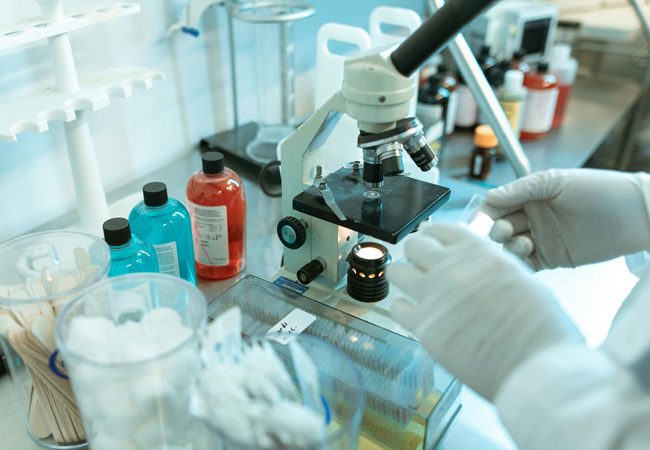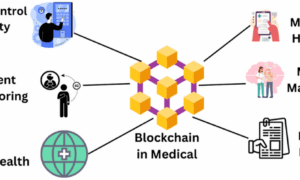Introduction:
In the dynamic landscape of pharmaceuticals, the pivotal role of biotechnology in drug discovery and development cannot be overstated. As science and technology continue to advance at an unprecedented pace, biotechnology stands as a beacon of innovation, unlocking new possibilities in the quest for novel and effective therapeutic solutions. This article delves into the multifaceted contributions of biotechnology in reshaping the drug development process, from target identification to clinical trials.
Understanding the Essence of Biotechnology:
Biotechnology harnesses biological systems, organisms, or derivatives to develop technologies and products for various applications. In drug discovery, this involves leveraging the inherent mechanisms of living organisms to identify and manipulate potential drug targets. Unlike traditional methods, biotechnology offers a more precise and tailored approach, enabling researchers to delve into the intricacies of cellular and molecular processes.
Target Identification and Validation:
One of the initial steps in drug discovery is identifying and validating potential drug targets. Biotechnology plays a crucial role in this phase by employing advanced techniques such as genomics, proteomics, and bioinformatics. Genomic data, for instance, allows researchers to pinpoint specific genes associated with diseases, offering a foundation for targeted therapeutic interventions. The integration of biotechnological tools ensures a more nuanced understanding of the biological pathways involved, leading to the identification of promising drug targets.
High-Throughput Screening and Bioprocessing:
Biotechnology facilitates high-throughput screening (HTS), a process that expedites the testing of thousands of compounds to identify potential drug candidates. This approach, combined with robotics and automation, accelerates the drug discovery timeline. Additionally, bioprocessing, a key aspect of biotechnology, enables the large-scale production of therapeutic proteins and other biopharmaceuticals. This is particularly crucial for the development of biologics, a class of drugs derived from living cells.
The Rise of Biologics:
Biologics represent a paradigm shift in drug development. These complex molecules, including monoclonal antibodies and recombinant proteins, are engineered using biotechnological methods. Biologics offer targeted and highly effective treatments, revolutionizing the therapeutic landscape for conditions such as cancer, autoimmune diseases, and rare genetic disorders. The precision of biologics minimizes adverse effects and enhances patient outcomes.
Revolutionizing Personalized Medicine:
Biotechnology has paved the way for personalized medicine, tailoring treatments to individual genetic profiles. This approach considers the genetic variations among patients, optimizing drug efficacy while minimizing side effects. Pharmacogenomics, an intersection of pharmacology and genomics, plays a pivotal role in predicting how an individual will respond to a particular drug. As a result, patients receive treatments that are not only effective but also well-tolerated.
Accelerating Drug Development Through Biopharmaceuticals:
Biopharmaceuticals, including vaccines and therapeutic proteins, have demonstrated unprecedented success in addressing various diseases. The utilization of biotechnology expedites the development of these innovative treatments. Vaccines, in particular, have seen remarkable advancements, with biotechnological platforms enabling rapid response to emerging infectious diseases. The COVID-19 pandemic underscored the agility of biotechnology in vaccine development, exemplifying its potential to tackle global health crises.
Streamlining Clinical Trials:
Biotechnology plays a pivotal role in optimizing clinical trials, a critical phase in drug development. Through biomarker discovery and advanced imaging techniques, researchers can monitor the efficacy and safety of experimental drugs more effectively. This not only enhances the chances of success but also reduces the time and resources required for clinical trials. Biotechnology’s integration in clinical trial design contributes to a more efficient and patient-centric drug development process.
Addressing Challenges in Drug Development:
Despite its transformative impact, biotechnology also faces challenges in drug discovery and development. Issues such as high development costs, ethical concerns, and regulatory complexities pose hurdles. However, ongoing advancements, collaborative efforts, and regulatory frameworks tailored to biopharmaceuticals are gradually mitigating these challenges, fostering an environment conducive to innovation.
The Future Landscape:
The future of drug discovery and development is intricately linked to the continued evolution of biotechnology. Emerging technologies such as CRISPR gene editing, artificial intelligence, and 3D bioprinting hold immense promise in further accelerating the process. CRISPR, for instance, allows precise manipulation of genes, opening avenues for targeted therapeutic interventions and personalized medicine on an unprecedented scale.
Conclusion:
The role of biotechnology in drug discovery and development is transformative, reshaping the pharmaceutical landscape. From target identification to clinical trials, biotechnology’s integration expedites processes, enhances precision, and fosters the development of groundbreaking treatments. As we stand at the intersection of biology and technology, the journey towards innovative and personalized therapeutics continues, propelled by the relentless pursuit of scientific discovery and the remarkable capabilities of biotechnology.



































